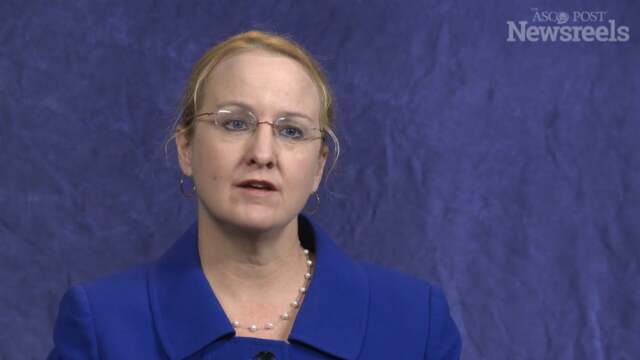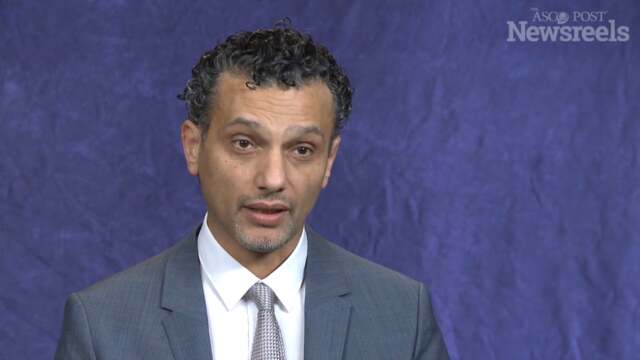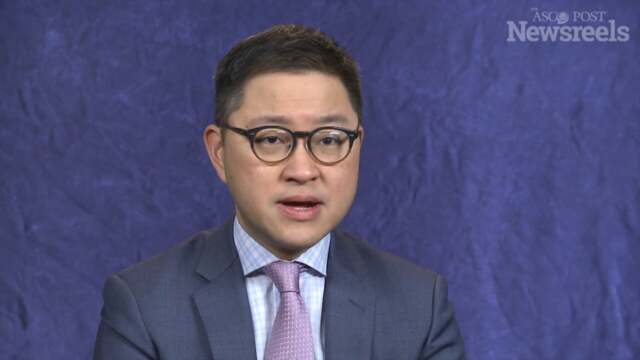Cornelis van de Velde, MD, PhD, on Rectal Cancer: A Database Update
2017 Gastrointestinal Cancers Symposium
Cornelis van de Velde, MD, PhD, of Leiden University Medical Center, discusses the International Watch & Wait database, established to track evidence on organ-preserving strategies in patients with rectal cancer (Abstract 521).
For More Information: www.IWWD.org
Eileen M. O’Reilly, MD, of Memorial Sloan Kettering Cancer Center, discusses a range of topics, including tyrosine kinase inhibitors, immune therapies, targeted approaches, and DNA damage repair strategies.
Sarah E. Hoffe, MD, of the Moffitt Cancer Center, discusses the controversial role of radiation in the treatment of pancreatic cancer, recent advances in delivering short courses of high-dose stereotactic body radiation therapy, and how best to integrate this new modality in borderline and locally advanced disease.
Ignacio Melero, MD, PhD, of the University Clinic of Navarra, Centre of Applied Medical Research, discusses in Spanish study findings on nivolumab dose escalation and expansion in patients with advanced hepatocellular carcinoma (Abstract 226).
Salah-Eddin Al-Batran, MD, of the Institute of Clinical Cancer Research and Nordwest Hospital, discusses study findings on paclitaxel with and without RAD001 in patients with gastric cancer whose disease has progressed after therapy with a fluoropyrimidine/platinum-containing regimen (Abstract 4).
Geoffrey Ku, MD, MBA, of Memorial Sloan Kettering Cancer Center, discusses the promise of immunotherapy drugs and the search for biomarkers that will help identify patients more likely to respond, not only to these medications, but to combinations of immunotherapies, other targeted treatments, chemotherapy drugs, and radiation.





